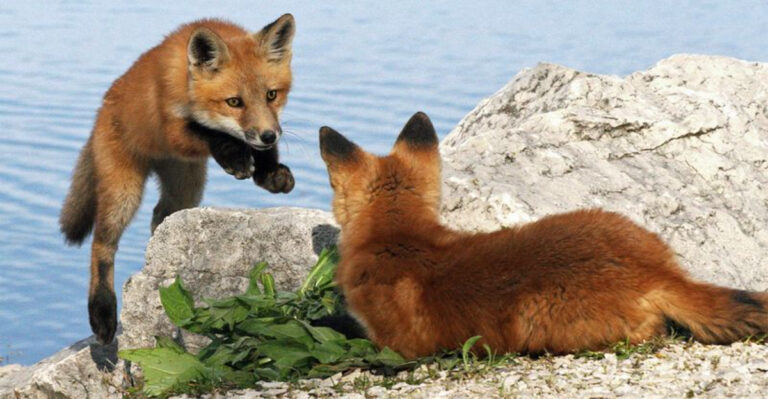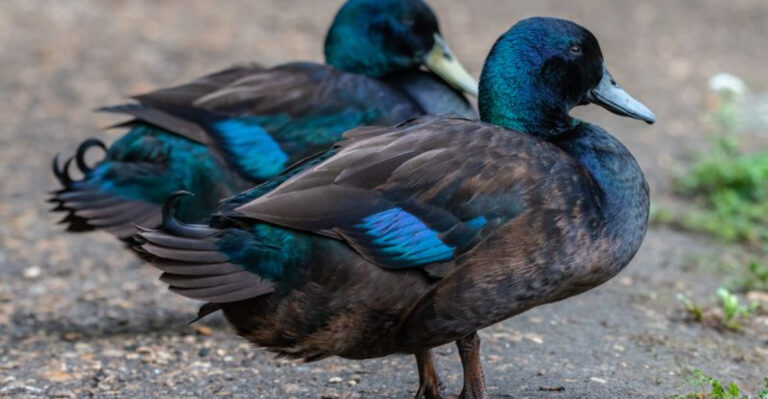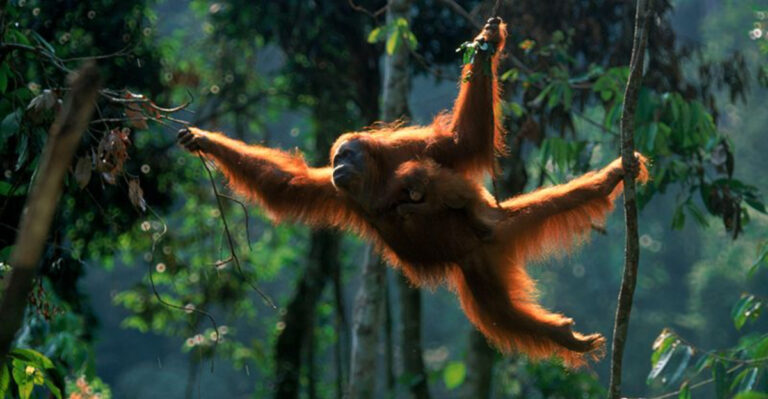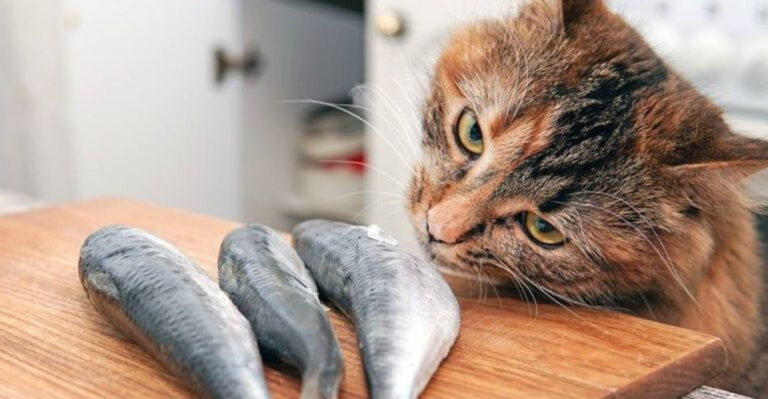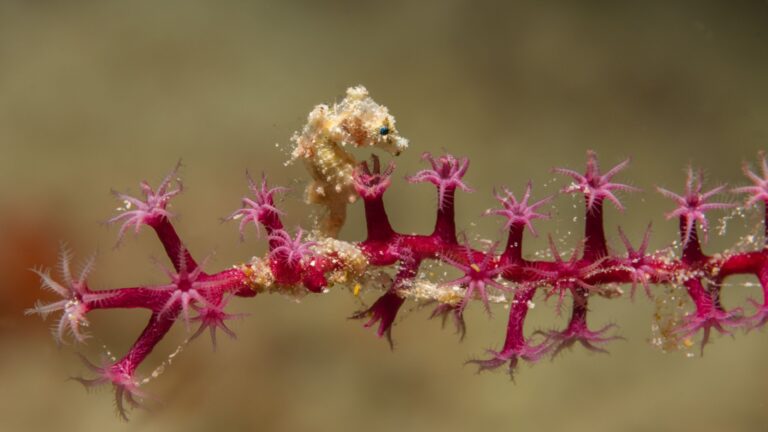14 Stinky Facts About The Skunk: The Master Of Chemical Defense
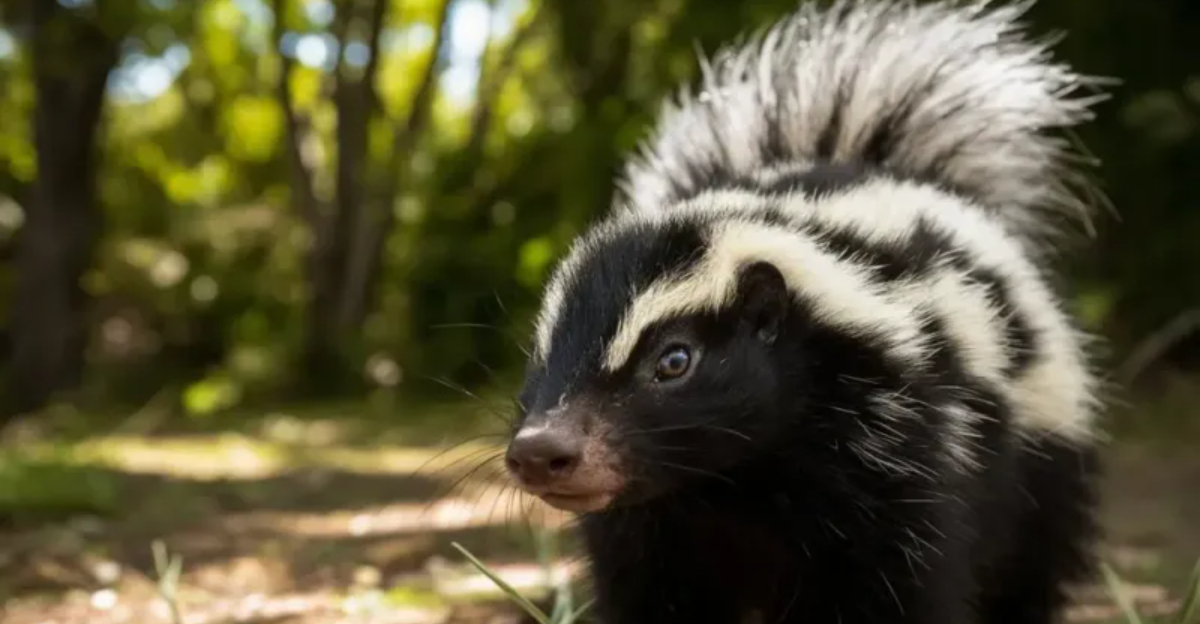
Ever met a small creature with the power to clear a room faster than a fire alarm? Meet the skunk, nature’s little stink bomb. With a scent that can stop predators in their tracks, these black-and-white wonders are full of surprises.
From their unique spray technique to their surprisingly gentle demeanor, skunks are more than just their smell.
1. The Spray Technique
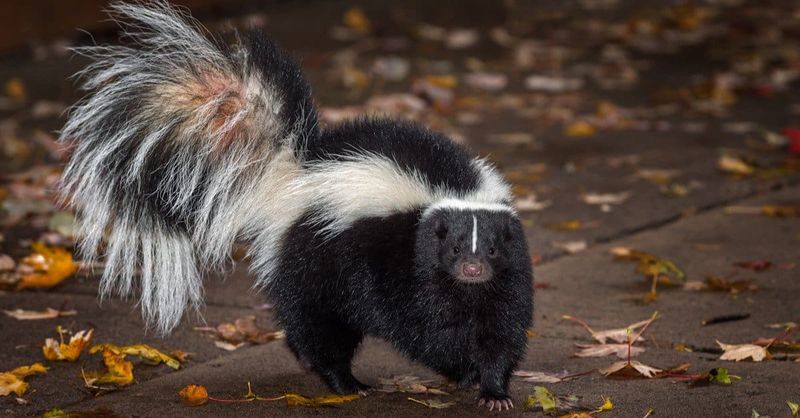
Skunks are armed with a powerful weapon: their spray. It’s not just any spray—it’s a precise stream directed at potential threats.
This liquid is so potent that it can cause temporary blindness and a lingering odor. Imagine having a natural defense system that effective! Skunks use this only when necessary, making it a last resort rather than a first line of offense.
2. Chemical Composition
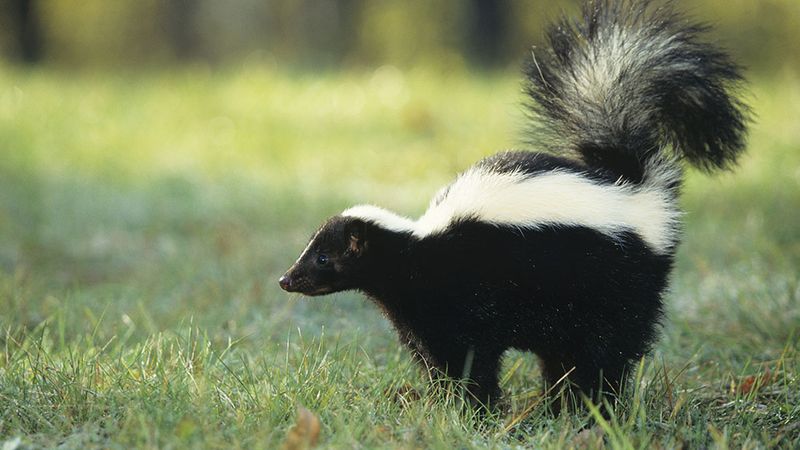
Skunk spray is a cocktail of chemicals, mainly thiols, which are sulfur-based compounds. This gives it the notorious smelly reputation. The complexity of the mix ensures that the scent is both strong and long-lasting.
Ever wondered why it sticks around? It’s because the thiols are stable and resistant to environmental factors, making them a formidable natural deterrent.
3. Unique Striped Pattern
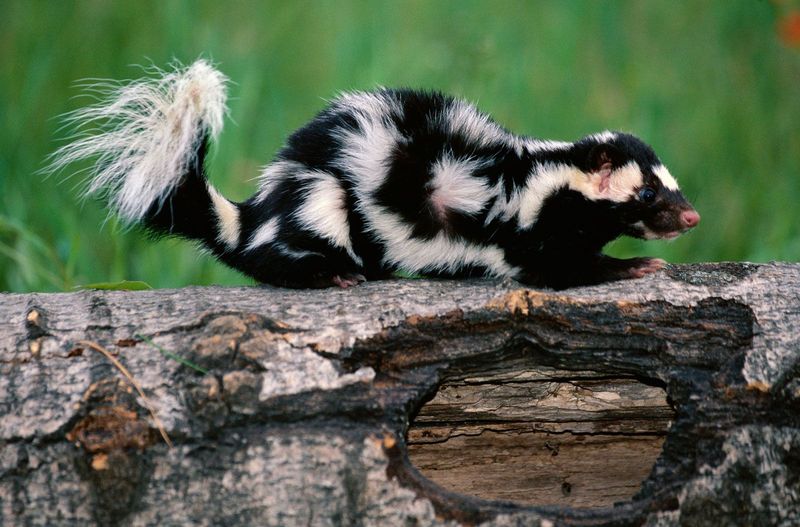
Each skunk wears its stripes like a fingerprint—no two are the same. These patterns serve as a warning to predators: mess with me, and you’ll regret it!
The bold black and white design is not just for style; it’s a visual cue of the skunk’s defensive capabilities. Think of it as nature’s warning label, loud and clear.
4. Nocturnal Lifestyle
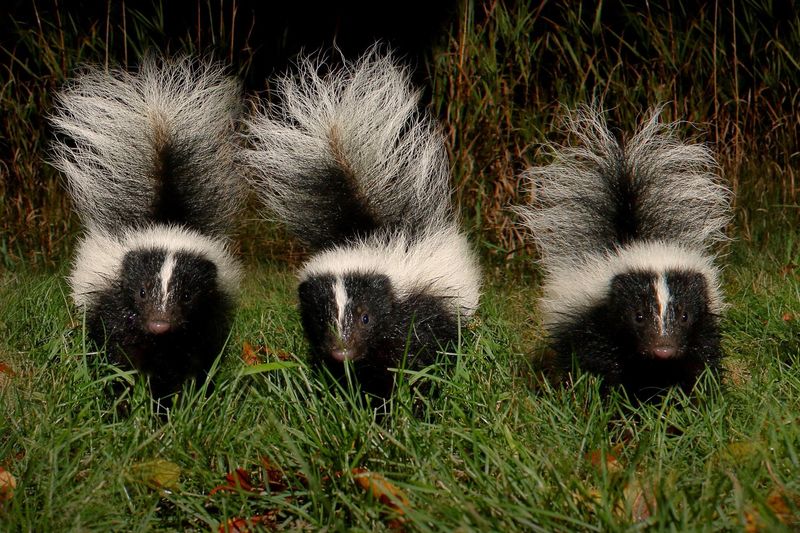
As twilight descends, skunks become active, embarking on nightly adventures. They are nocturnal creatures, preferring to forage for food when it’s dark.
This lifestyle helps them avoid daytime predators and stay under the radar. With their keen sense of smell and hearing, they navigate the night with ease, searching for insects, small mammals, and plants.
5. Short Lifespan
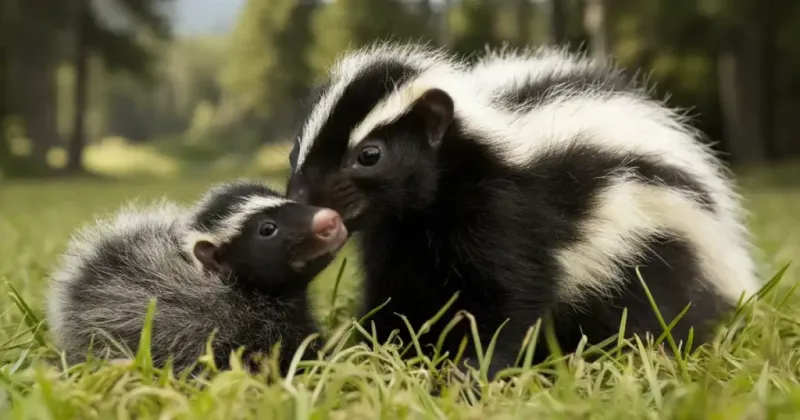
In the wild, skunks live a relatively short life, often just 2-4 years. Predators, disease, and environmental factors contribute to this brief existence.
Despite this, they live life to the fullest, ensuring their genes are passed on. Their survival strategy involves having multiple offspring, increasing the chances that some will reach adulthood and continue the lineage.
6. Dietary Habits
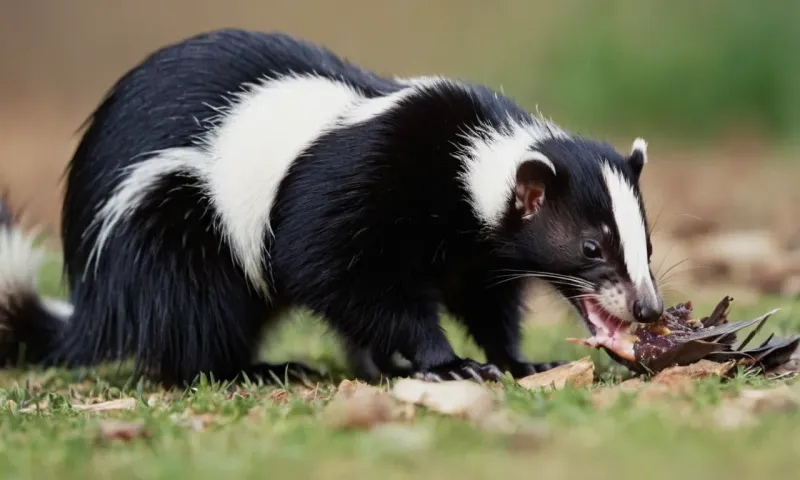
Skunks are opportunistic feeders, enjoying a varied diet that includes insects, small animals, and berries. This diverse menu helps them adapt to different environments.
Ever seen one in your garden? They’re likely on a grub hunt! Their foraging behavior plays a vital role in controlling insect populations, making them an essential part of the ecosystem.
7. Solitary Nature
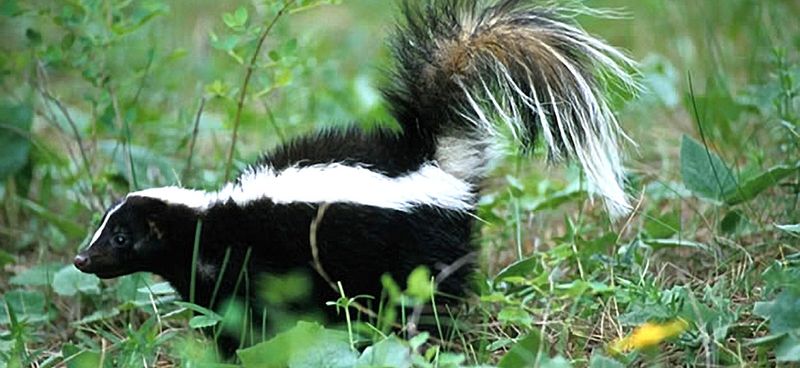
Skunks are solitary creatures, preferring to go about their business alone. This independent streak is part of their charm. Only during mating season do they seek out company.
Their solitary nature helps them avoid competition for resources, allowing them to thrive in various habitats. It’s a lifestyle choice that suits their need for space and quiet.
8. Skunks As Pets
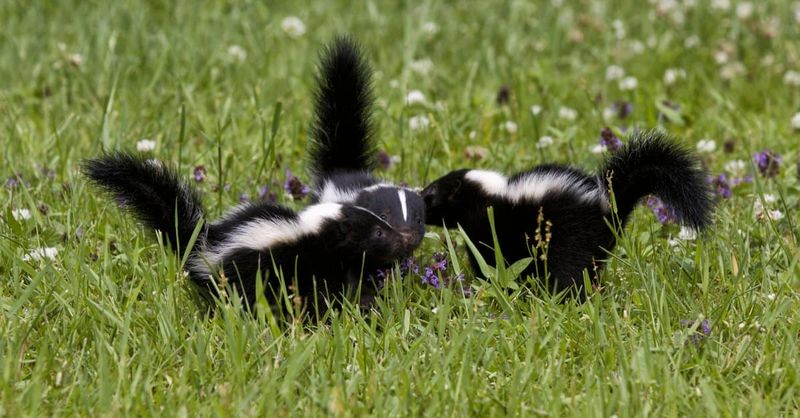
Believe it or not, some people keep skunks as pets. When de-scented, they can be affectionate and playful companions. These unique pets require special care and attention, including a specific diet and plenty of enrichment.
Keeping a skunk is not for everyone, but for those who do, it’s a rewarding experience that offers a glimpse into their gentle nature.
9. Natural Pest Control
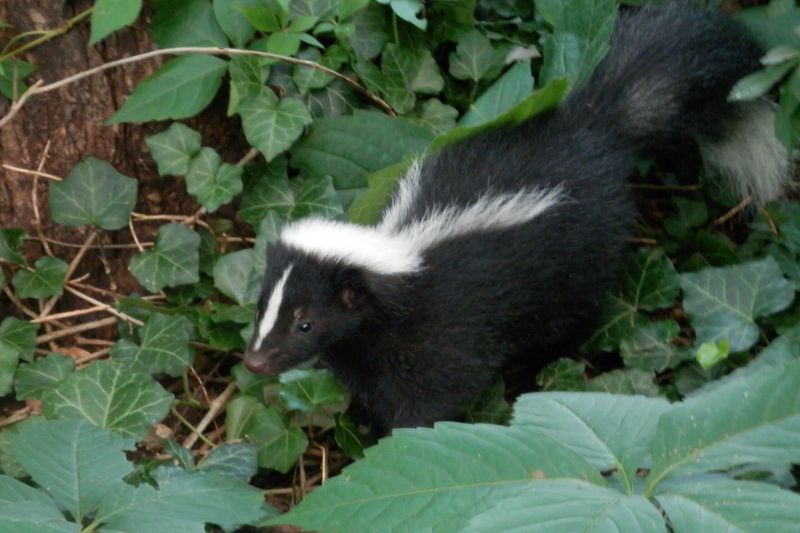
Skunks are natural pest controllers, feasting on insects and rodents that can be troublesome for humans. By keeping these populations in check, they help maintain a healthy balance in nature. Imagine having a pest control service that works for free!
Their presence in gardens and fields is beneficial, although their reputation often precedes them.
10. Skunk Myths Debunked
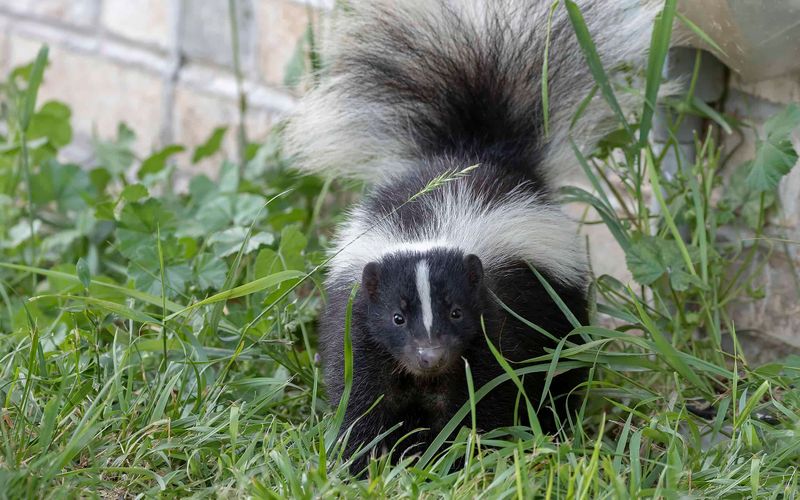
Skunks are often misunderstood, surrounded by myths and misconceptions. They’re not aggressive and will avoid confrontation if possible. The belief that they spray indiscriminately is false.
Skunks reserve their defense for true threats, warning with hisses and foot-stomping first. Understanding these creatures helps dispel myths, revealing their true nature as gentle and mostly harmless.
11. Skunk Habitats
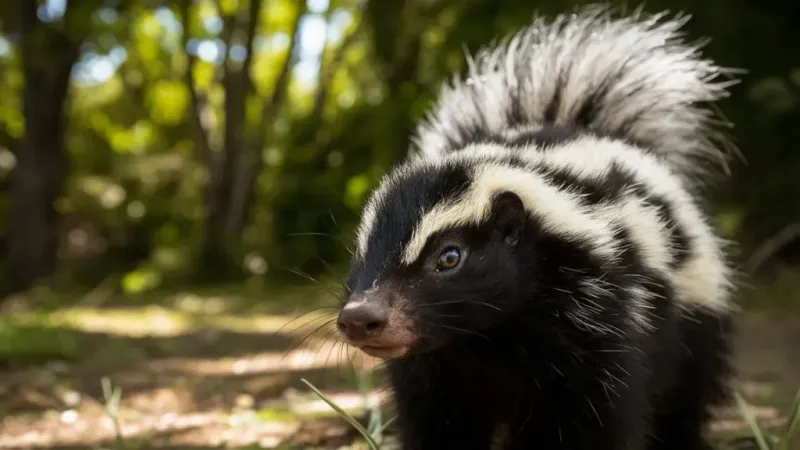
Skunks are versatile, calling a variety of habitats home. From forests to urban areas, they adapt with ease. This adaptability is key to their survival, allowing them to thrive in different settings.
Whether in the wild or near human settlements, skunks find ways to coexist and make the most of available resources. Their ability to adapt is truly remarkable.
12. Predators And Threats
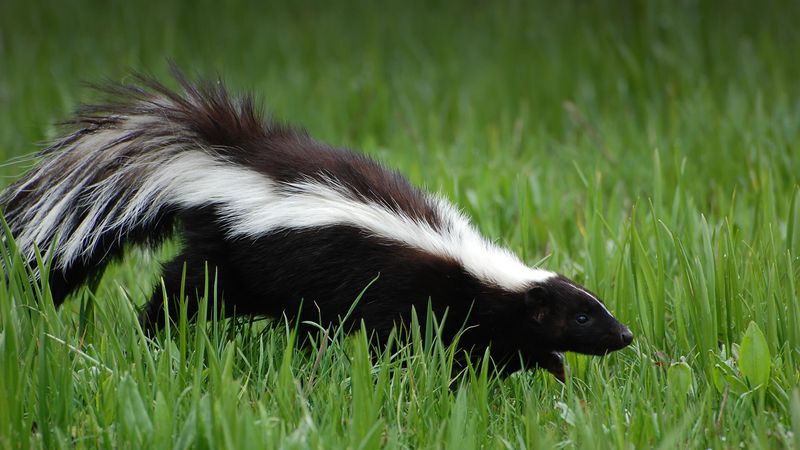
Despite their potent spray, skunks have natural predators like owls, coyotes, and foxes. These animals have adapted to skunk defenses, sometimes preying on them.
This dynamic creates a balance in the ecosystem. Skunks are also threatened by human activities, such as habitat destruction and road accidents. Awareness and conservation efforts can help protect these fascinating creatures.
13. Skunk Symbolism
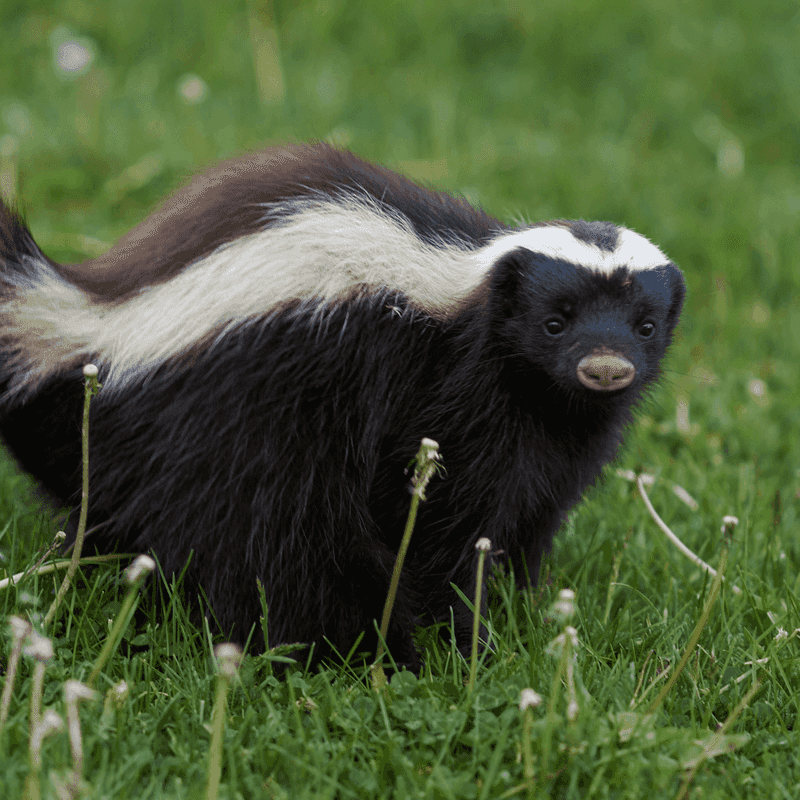
Throughout history, skunks have been symbols of self-awareness and respect. Many cultures revere them for their powerful defense mechanism and ability to stand their ground.
The skunk embodies confidence and caution, teaching us to handle conflicts wisely. This symbolic significance goes beyond their physical presence, resonating with those who admire resilience and assertiveness.
14. The Skunk’s Role In Pop Culture
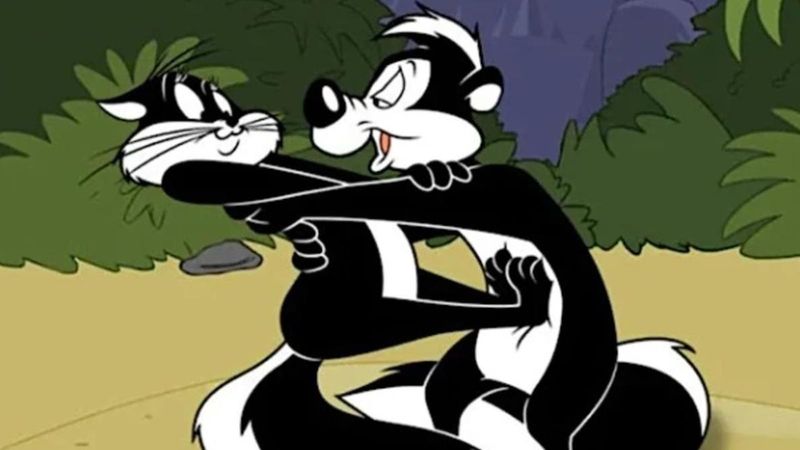
Skunks have made their mark in pop culture, from cartoons to films. Characters like Pepe Le Pew have showcased their playful side, though often exaggerating their scent.
These portrayals highlight a mix of charm and mischief, capturing the public’s imagination. Skunks in media remind us of their unique place in the animal kingdom, blending humor with a hint of truth.

